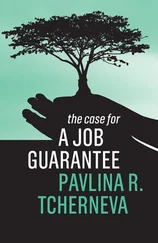According to time theorist Barbara Adam, the variable time of ‘seasons, ageing, growth and decay, joy and pain’ gave way to the ‘abstract time of the clock where one hour is the same irrespective of context and emotion’. 17We have since grown used to thinking about time in discrete, globally consistent units that can be counted uniformly – seconds, minutes, hours, days, weeks and so on. We live accordingly, staking out our lives by clock and calendar.
Clock time has served and strengthened a powerful work ethic that embraces the idea of hard work as a route to profit and success. This has deep roots in economic and cultural developments over several centuries. It has served modern capitalism well, but with increasingly toxic effects. For if long hours of paid work are the route to virtue and success, it follows that the main purpose and value of human existence is productive capacity. By this logic, those who are not ‘productive’ have no worth. Like wheat from chaff, hard-working ‘strivers’ are separated from lazy ‘skivers’. 18The former are rewarded, the latter punished – by increasingly ungenerous systems of ‘social protection’.
There are many politicians and business leaders who now seem keen to reverse the trend of reduced working time. They brag about sleep deprivation, while energy drinks, late-night gyms and self-help books propagate an ‘always on’ culture of relentless productivity. Tycoon Elon Musk of PayPal and SpaceX declares that ‘nobody ever changed the world on 40 hours a week’. 19Jack Ma, Chinese billionaire and CEO of the Alibaba Group, champions a ‘996’ routine of 9 a.m. to 9 p.m., six days a week. 20All these attitudes have contributed to a strong cultural bias in favour of long hours of work.
We can change what is ‘normal’
However, on both fronts – economic and cultural – there are some encouraging signs. Across advanced economies today, higher productivity is in fact associated with lower annual hours worked. Poorer countries such as Greece and Mexico are at one end of the spectrum, with higher annual hours and comparatively low productivity, while North European and Scandinavian countries sit at the other end, with higher productivity and lower annual hours. Countries such as the UK sit among high-productivity economies, but even here there are significant differences between countries. Consider the gap that exists between Germany and the UK, for example: in 2018 average annual hours worked per capita in Germany (1,363) were much lower than in the UK (1,538) while GDP per hour worked was much higher (109 compared with 103). 21No wonder people quip that German workers could lay down tools sometime around Thursday lunchtime and still get as much done as UK workers would by the end of Friday.
Comparing productivity across nations is problematic because it assumes a constant and comparable measure of price and value. But there is evidently no single set of rules for configuring an economy. There is no law for the number of working hours required to generate ‘success’. What matters is not just productivity, but who gains and how. The relationship between time spent working and other economic fundamentals may have significant path dependency, underpinned by culture and institutions. But history shows us that countries can – and do – change course. That’s because decisions and actions by politicians, trade unions and wider civil society really make a difference.
And we are not destined to be locked in forever by cultural bias. Unless we believe, with Judge Gary, that there’s a God-given standard for hours of work (and we don’t), we can agree that it is socially constructed – and therefore we can change it.
There is nothing ‘normal’ or ‘inevitable’ about doing paid work for five days or 40 hours a week. Nor should the process of selling our time control and shape all other aspects of our experience. We reject the assumption that we live to work, work to earn, and strive to earn more in order to buy more things because that’s supposed to be good for the economy. After all, the whole point of economic activity is to serve the interests of people and the planet – not the other way around.
Too much work can ruin our health. Beyond a certain level, having more money doesn’t make us any happier. Buying increasingly resource-intensive stuff risks breaching the limits of our finite planet and tipping the whole world towards catastrophe. Time is an asset to be nurtured and cherished. Unpaid time is far too valuable to be squeezed and shunted into small corners of our lives.
So these are strong reasons for moving towards a shorter working week, and they have been thrown into sharp relief by the social and economic effects of the 2020 COVID-19 pandemic.
In the next chapterwe explore these reasons in more detail, in particular how reduced hours of paid work can bring benefits to society and the environment. In Chapter 3, we consider and respond to a range of challenges to our proposal, including questions about choice, leisure and pay, and whether reduced hours will be bad for the economy. In Chapter 4, we describe how it’s done in practice – from government interventions and trade union negotiations to initiatives by individual employers and cross-sectoral campaigning. In Chapter 5, we set out a route map for the transition to a shorter working week.
1 1. J. Walker and R. Fontinha (2019), Four Better or Four Worse? Research White Paper. Reading: Henley Business School, p. 8. https://assets.henley.ac.uk/defaultUploads/Journalists-Regatta-2019-White-Paper-FINAL.pdf?
2 2. C. Ibbetson (2019), ‘Business backs a four-day working week’, Yougov. https://yougov.co.uk/topics/finance/articles-reports/2019/09/23/business-backs-four-day-working-week.
3 3. R. Skidelsky and E. Skidelsky (2013), How Much Is Enough? The Love of Money, and the Case for the Good Life. London: Penguin, pp. 29–30.
4 4. TUC (2019), A Future that Works for Working People. London: TUC. https://www.tuc.org.uk/sites/default/files/FutureofWorkReport1.pdf.
5 5. D. Sage (2019), ‘Unemployment, wellbeing and the power of the work ethic: Implications for social policy’, Critical Social Policy 39(2): 205–228.
6 6. Letters to the Editor (2019), ‘Future of the NHS and Labour’s four-day week’, The Times. https://www.thetimes.co.uk/article/future-of-the-nhs-and-labour-s-four-day-week-hs0f6qknj.
7 7. See E. Aveling (1890), ‘The eight-hour working day’, Time, pp. 632–638. https://www.marxists.org/history/interna-tional/social-democracy/time/aveling-june.htm.
8 8. K. Marx (1894), Capital, Volume 3. London: Penguin, ch. 48.
9 9. The Green Institute (2016), Can Less Work Be More Fair? A Discussion Paper on Universal Basic Income and Shorter Working Week. https://www.greeninstitute.org.au/publications/less-work-more-fair/.
10 10. ‘C001 – Hours of Work (Industry) Convention, 1919’. https://www.ilo.org/dyn/normlex/en/f?p=NORMLEXPUB:12100:0::NO::P12100_ILO_CODE:C001.
11 11. B. K. Hunnicutt (1984), ‘The end of shorter hours’, Labor History 25(3): 373–404.
12 12. B. K. Hunnicutt (1996), Kellogg’s Six-Hour Day. Philadelphia, PA: Temple University Press.
13 13. A. Martin (2019) ‘Insecure work: Are we at the tipping point?’. https://neweconomics.org/2019/06/insecure-work-are-we-at-tipping-point.
14 14. E. H. Gary, quoted in (1926), ‘Attitude of certain employers to 5-day week’, Monthly Labor Review 23(6): 16–17.
15 15. T. Messer-Kruse (2011), The Trial of the Haymarket Anarchists: Terror and Justice in the Gilded Age. New York: Springer.
16 16. E. P. Thompson (1967), ‘Time, work-discipline, and industrial capitalism’, Past & Present 38: 56–97.
Читать дальше












